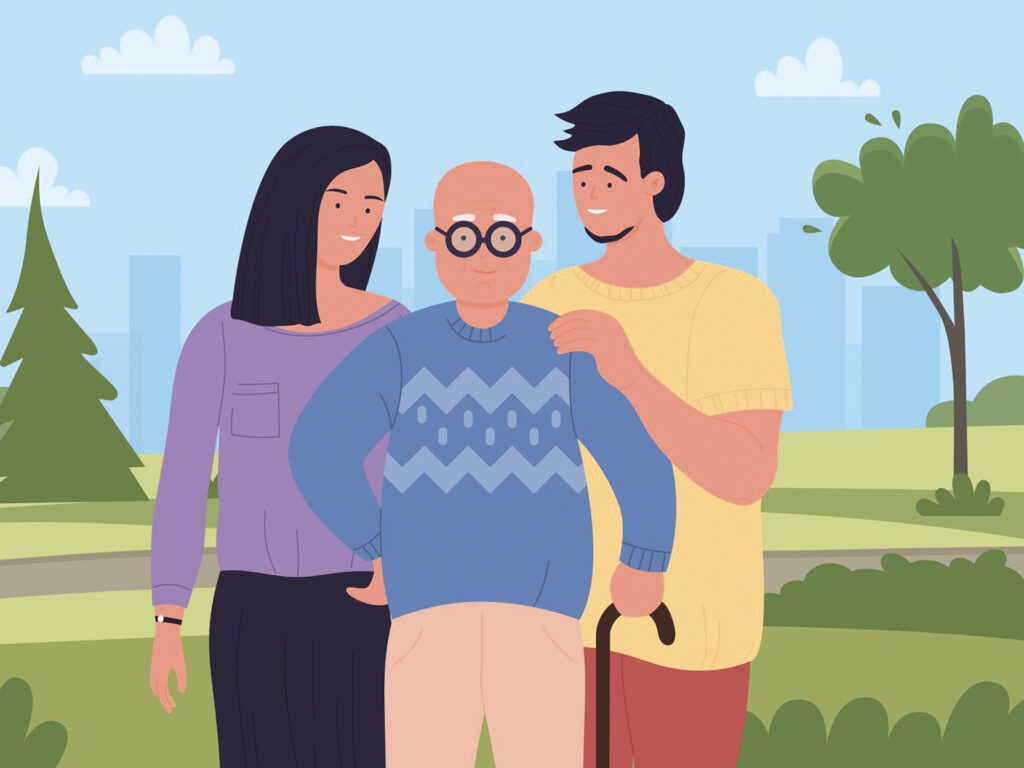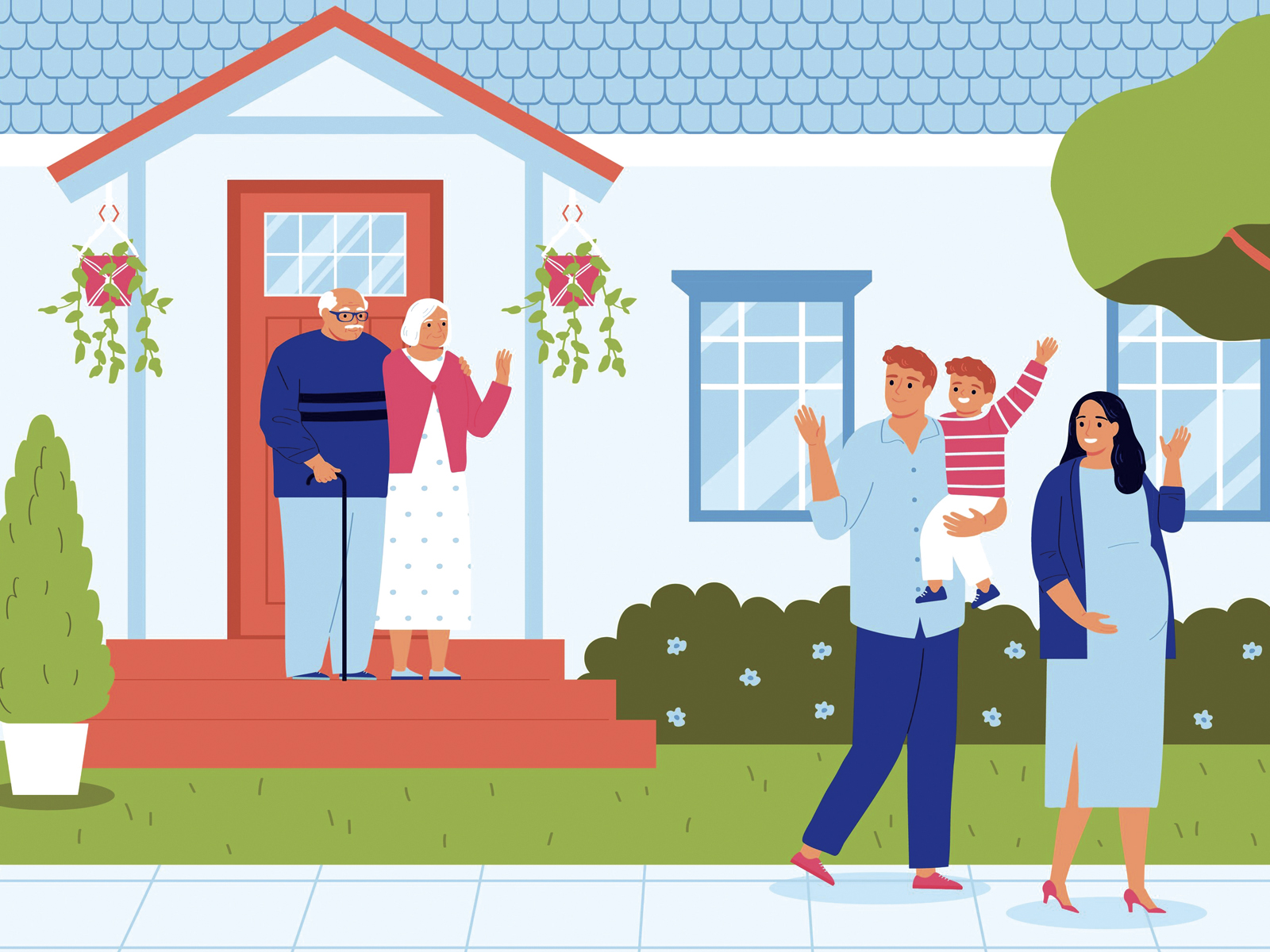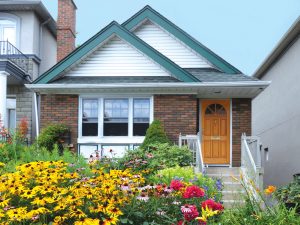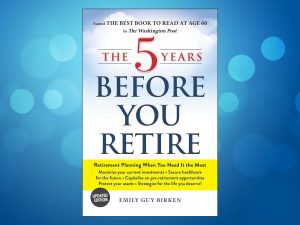Is it time to get involved?
By Kylie McKenzie
Let’s take a look at some of the facts, as well as some of the impacts, options, and ways our relationships and medical needs have on how and where we live and the ways we can help others in our lives to stay safe, comfortable and fulfilled. I’ll also provide some clues for when your intervention might be needed.
Firstly, please keep in mind that this may be fragile period in your family member’s life. Something may have already happened and now you’re worried about their safety or ability to cope on a temporary or a more permanent basis. Perhaps you’re watching behaviours that are inconsistent or hard to read or you notice that your parents are trying to hide things so that you think everything is okay. Know that a lot of older adults will indeed be secretive when it comes to trying to maintain their independence, privacy and, of course, to avoid the “dreaded move” to a care facility.
What to watch for
Here are some ideas for those of you who are concerned:
• Be diligent: Keep your eye out for one or more changes that may signal that all is not well.
• Activity levels: Suddenly your relative or friend is focusing on the negative. You notice that they are no longer pursuing hobbies or social interests that once provided pleasure.
• Personal grooming: Few things raise the spirit like newly coiffed hair, a trimmed beard or a freshly laundered shirt. However, when people are depressed, their personal hygiene and grooming are often the first daily activities to fall by the wayside.
• Bill paying: If your parent is recently widowed and is having difficulty with administration and bill paying, they may just need a helping hand until they can master these new skills. On the other hand, if they’ve previously been very conscientious about paying the bills and you see a marked change in these habits, it’s time to check in.
• Taxes and other financial matters: Whether the person you care for owns or rents their home, or has other assets to keep abreast of, the details can be daunting. Be sure to get expert’s advice from a professional and keep track of paperwork if you can. This stage in a person’s life often makes them vulnerable and at risk for abuse.
• Health watch: Many symptoms of a confusion may be related to medications. Be aware that a sudden decline in health can be attributed to an untreated medical condition. Keep an eye out for a marked loss of appetite, a change in sleeping patterns, loss of hearing or urinary or fecal incontinence, as well as falls or disorientation, confusion or suspicion.
• Medication management: Is your relative using medication inappropriately? Perhaps they have so many pills to take that they can’t remember which does what. While a good medication regimen has positive effects, there are unfortunate and sometimes deadly results of improperly taken medications. Check with the family doc or the pharmacist. Oftentimes they are taking too many meds or things they don’t need to. Watch out also for over the counter items, vitamins and herbal supplements that they might be taking.
• Forgetfulness: When dad or mum can’t remember the names of longstanding friends or family or goes to a familiar place and can’t get home, it should be of concern to you.
• Fear: At times older adults are afraid of cultural stigma or ageist attitudes which may prevent them from accessing community services/programs or being socially active in their community.
• Loneliness: It’s easy to forget that without work and family around all the time, seniors may have trouble getting out and about. They may also feel uncomfortable, unsafe or unsteady on their feet. It’s important to find ways to keep loved ones active and engaged.

What you might want to know
More women than men live on their own and more of them are caregivers for a spouse or loved one. About a third of seniors live in collective housing, senior’s apartments, retirement residence or a nursing home. But many of the others choose, and are able to, live independently in the community in all manner of situations. Sometimes we find couples living together who are happily trying to stay together in their family home. At other times, there’s an elder who is hoarding or a person who begins to get too frail physically or mentally but prefers (insists) on staying in their own residence.
Here are some things to watch for as you decide whether you need to get involved:
• Isolation: A study by McMaster University suggested that loneliness and isolation each have inherent health risks that could have an impact that is as serious as obesity, smoking or alcoholism.
• Inside and alone: Someone who is by themselves all day, doesn’t go out of the house all day and has no close relatives, visitors or contact with neighbours. They also don’t go to any community activities.
• No way to ask for help: The individual is without a telephone or doesn’t use it. And the nearest neighbour is well out of earshot.
• Is losing weight: Many seniors don’t like to shop and cook for themselves. Some don’t want to or haven’t got money to spend money on fresh food.
• Messy house: The home is no longer fit or safe to live in because of the mess, mould, bugs, hoarding, multiple pets or lack of repair.
• Health care advice: Do they have or are they in touch with their family doctor or visiting nurses. Are they healthy or is there something that needs attending to?
• Could be depressed: The person is sad and says they have no one to help them, and no one to talk to. They feel they don’t see enough of friends and relatives. Plus, there are not any friends nearby anymore.
• Seems to be fearful: Has no confidence or is afraid of going out. Is or has been abused financially, physically or mentally by a family member, friend or stranger.
• Alone at festivals: Spent the previous Christmas, Thanksgiving, birthdays and family holidays without companionship and care.
The impact of loneliness and isolation
According to experts the impact of being on their own actually makes people more apt to become seriously ill with everything from chronic lung disease and arthritis, to impaired mobility as well as overconsumption of alcohol. Loneliness can also cause binge or overeating, great likelihood of smoking as a way to cope and a reluctance to get any exercise. This lack of exercise can lead to increased rates of high blood pressure, heart disease, and other issues.
Multiple studies have found that loneliness can affect heart health in significant ways. Researchers in Sweden found that coronary bypass patients who described themselves as lonely were 2.6 times more likely to die within 30 days after surgery than non-lonely patients. Additionally, even 5 years after the surgery, the risk of death for lonely patients was still 1.8 times higher.
Loneliness and isolation can have major effects on mental health as well. A Dutch study found that seniors who suffer from loneliness have a 64% higher risk of dementia. Depression is also very common in lonely seniors. Sadly, among seniors who live in residential care facilities, the rate of depression has been shown to be as high as 44%, higher than those who continue to live in their communities.
Careful choices
It’s often hard to decide the best course of action at times like this. Sometimes it’s a few creative tweaks rather than dramatic action that will get your loved one back on course, at least for now. But, a word to the wise, keep an open mind, seek professional advice if its available and discuss options whenever possible with the person involved. Remember, one size doesn’t fit all, as the saying goes.
Kylie McKenzie is a member of the Caregiver Solutions editorial team.













